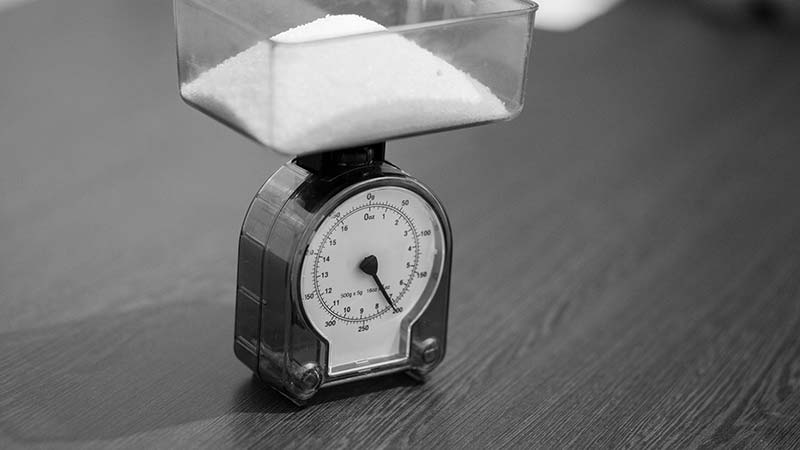
Just how much of a bad habit is bad for you? Cigarettes, added sugar, exercise imbalance and excess mental stress have no safe dose. But there is something you can do.
We live in a world where moderation is considered king, at least that’s a key justification people use to consume harmful substances and participate in other stressful activities.
“Everything in moderation” is the mantra used to exonerate an indulgence. It’s a consensus, repeated so often it’s become a social norm. However, it’s clear moderate doses of certain foods or drugs, even in very small amounts, have the potential for harm when considering the effects on the body. One example is alcohol: no amount, even one taste, seems safe for driving. Likewise, a single dose of tobacco or sugar may have more serious ramifications for your health.
Excessive moderation is easier to see when we view unhealthy habits from a standpoint of their minimum deadly dose. Skyrocketing chronic illness worldwide is one outcome.
Smoking Surprise
A billion people around the world still smoke, and the number continues to rise. Those who smoke a “modest” 1-10 cigarettes a day doubled between 2005 and 2014, including those who exercise, and even some athletes. Low-dose smokers often mistakenly believe one cigarette won’t hurt, especially for light/low nicotine products. Some think that certified organic tobacco is OK. But studies show just one cigarette a day can raise the risk of heart disease by 50 percent.
Cigarette smoking also is associated with being overfat — the infamous double whammy. Some rationalize the data showing smokers have lower BMI and body weight, a condition due to the harmful effects of nicotine. But as a group, smokers have increased abdominal fat, making them normal-weight overfat, a serious problem in both developed and developing countries.
Excess body fat, especially in the abdomen, raises the risk of cancer, diabetes, Alzheimer’s, cardiovascular and other chronic diseases, and of physical impairment, including chronic pain.
Many smokers also know that quitting can cause even more increases in body fat. That’s in great part because sugar consumption often increases when smoking ceases — a problem also seen in those who quit alcohol and other drugs.
A Taste of Sugar
Sugar (and other refined carbohydrate) consumption is a key reason for the global overfat pandemic, quickly changing the metabolism to not only increase body fat, but reduce the ability to burn it even during exercise. Excess body fat promotes chronic inflammation, carbohydrate intolerance and most chronic diseases, along with higher rates of physical impairment.
Those who are overfat have twice the attraction to sweet substances than those with normal body fat. This leads to increased sugar consumption. As studies show, consuming sugar enhances our preference for sweets, leading to a vicious cycle called addiction as taste is a primary determinant in food choice. Sugar in the mouth actually alters taste buds, directly affecting eating behavior. This is associated with the dopamine reward centers in the brain.
These changes can occur quickly. Just eating a little more sugar on vacation or during holidays, or that one piece of birthday cake, for example, is sufficient to start the cycle, which involves neurological and metabolic mechanisms.
As body fat increases, taste buds becomes impaired — sweets taste less sweet, driving the craving for more sugar and even sweeter sweets. The actual taste of sweetness becomes a more pleasant sensation.
It’s the taste buds of the tongue that trigger the perception of reward from sugar. Recent research shows excess body fat and resulting inflammation impairs taste bud function, playing a key role in driving more sugar consumption and addiction.
Even those with normal body fat levels can damage their taste buds quickly, especially with sugar-sweetened beverages.
Just stimulating the taste buds with a single taste of sugar (or sugar-free sweet taste) can cause immediate changes in blood sugar and insulin. While this can have potential benefits during athletic performance where sweet taste can stimulate the brain to provide positive effects on muscles, at virtually all other times it may have negative metabolic influences.
The Exercise Edge
Physical activity is a requirement in humans for good health and fitness. Even relatively small amounts of it are well known to have great benefits.
On the other extreme, too much exercise volume or intensity can also cause the well-known harm called overtraining. A single workout may be more than sufficient to induce measurable stress. While this stress offers changes that can ultimately bring benefits, without daily recovery these benefits may not materialize.
The Stress of Life
Cigarette smoke, sugar, excess body fat, exercise, and chronic illness are examples of stress, but even small amounts of mental-emotional stress can be significantly harmful, especially when we don’t recover from them. Even seemingly minor stressors, like a bad encounter with another person, or the frustration of fixing your computer, may not last long but the effects of the stress hormone response can linger long enough to combine with other stress. In other words, stress can accumulate.
Signs and symptoms of stress are not difficult to recognize. Common examples include:
- Increased resting and exercise heart rate. This can reduce physical performance.
- Pain — it’s not only a symptom of stress, but can cause more stress.
- Waking during the night, especially when you don’t get right back to sleep, can be a sign of stress. Reduced quality and quantity of sleep further creates more stress.
- Intestinal distress such as excess bloating/gas can indicate excess stress, impairing digestion and absorption of nutrients, causing added stress. Poor appetite or cravings for sweets or caffeine could also be triggered by stress.
- Immune stress can increase length and frequency of illness, such as a cold that lasts too long, recurrent infections, or increased disease risk.
- Hormone imbalance of all types.
- Depression, anxiety, anger, moodiness, restlessness, poor memory or concentration.
Being aware of our various stressors is the first step to managing them.
Despite the fact that smoking is on the rise, 90 percent or more of adults in developed nations are overfat, that sugar is found in 75 percent of packaged food, and other stressors are everywhere, it is up to each of us to control our lifestyles, and thus take control of our own health.
References
Hackshaw A, et al. Low cigarette consumption and risk of coronary heart disease and stroke: meta-analysis of 141 cohort studies in 55 study reports. BMJ 2018;360:j5855.
Chatkin R, et al. Smoking Is Associated with More Abdominal Fat in Morbidly Obese Patients. PLoS One. 2015; 10(5): e0126146.
Kaufman A, et al. Inflammation arising from obesity reduces taste bud abundance and inhibits renewal. PLoS Biology. March 20, 2018. doi.org/10.1371/journal.pbio.2001959.
Tonosaki K, et al. Relationships between insulin release and taste. Biomed Res 2007; 28(2):79-83.
Chambers ES, Bridge MW, Jones DA. Carbohydrate sensing in the human mouth: effects on exercise performance and brain activity. J Physiol 2009; 587: 1779-94.
Phillips DP, et al. Official blame for drivers with very low blood alcohol content: there is no safe combination of drinking and driving. Inj Prev. 2015;21(e1):e28-35.








